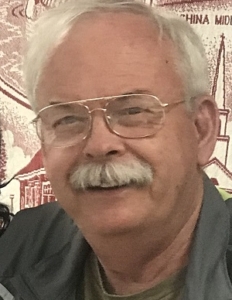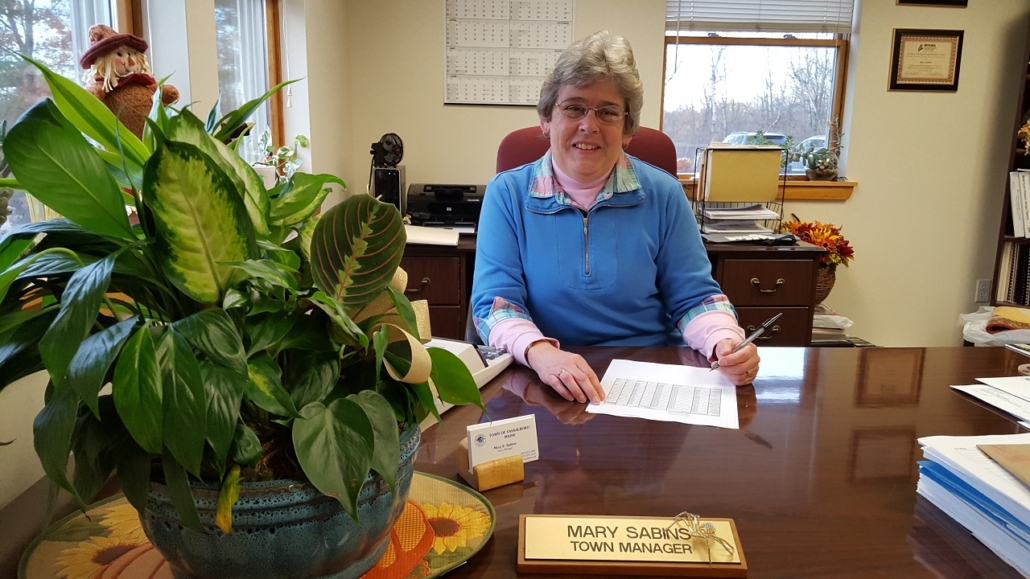The Oct. 28 China candidates’ forum at the China Village library gave the four candidates for three seats on the Board of Selectmen, plus retiring Selectman Neil Farrington, a chance to talk about their visions for the town’s future. After introductory statements, a question and answer session led to expanded answers and new topics, including some of the five local referendum questions.
China voters will elect town officials and decide the local referenda, along with state elections and referenda, on Nov. 6. China polls will be open from 7 a.m. to 8 p.m. in the portable classroom behind the town office.
All four local candidates are long-time China residents; Wayne Chadwick, Jeffrey LaVerdiere and Donna Mills-Stevens are businesspeople, Ronald Breton a retiree; all have some experience on local boards and committees. All think China needs growth, both economically, including services, and in population, especially young families. Speaking in alphabetical order, they emphasized the following points.
BRETON offered the most detailed list of things he would like to see done, including encouraging beneficial new businesses, adding health-related services and assisted living units for senior citizens, creating a youth center “to give kids something to do in town,” expanding high-speed internet access, reviewing the Land Use Ordinance, continuing to protect China Lake and Three Mile Pond and continuing recycling despite the drop-off in prices for recycled materials.
CHADWICK’s initial emphasis was on more responsible town spending and shrinking town government rather than growing it. LAVERDIERE, one of two incumbents seeking another term, also favors more control of town spending. He thinks selectmen should look at government from a business perspective, for example by trading equipment less frequently. He agreed with Breton on reviewing the Land Use Ordinance and commended the Alewife Restoration Initiative (ARI) as one reason “China Lake is doing pretty well.”
MILLS-STEVENS, also an incumbent, said her first year on the board and conversations with neighbors showed her some of the issues and problems; if re-elected she expects to contribute to solutions. She favors encouraging small businesses, like antique shops and a local farmers’ market; thinks the town needs a community center, centrally located and ideally near China Lake; and sees the new causeway and expanded access to the head of China Lake as another way to bring more people to town, “maybe more than we want sometimes.”
NEIL FARRINGTON, retiring from the selectboard and running unopposed for an open seat on the Regional School Unit (RSU) #18 Board of Directors, said after 14 years as a selectman complaining about the size of the school budget and the lack of information selectmen get about school matters, he decided to become a school insider. He plans to keep selectmen updated on directions the school unit is taking, programs and reasons for expenditure requests.
There seemed to be no opposition among the candidates to expanding and improving internet service. Breton, Chadwick and LaVerdiere spoke in favor of senior housing and health facilities, as long as the town assisted a private developer, for example with tax breaks, and did not own the facilities.
Later discussion returned to the topic of a community center, in response to audience questions and in relation to the Nov. 6 referendum question asking voters to appropriate $5,000 for preliminary study of using the town-owned property near the north end of Lakeview Drive. Opinions became more complicated.
All four candidates for selectman support allocating the requested $5,000 for exploration. Breton is most enthusiastic about going on, assuming satisfactory results, to create a community center. The emergency services building which is also part of the question got little discussion; LaVerdiere thinks it would be too expensive.
Chadwick is the principal opponent of a community center, citing other meeting places available in town and telling Breton activities for young people could be expanded without an expensive new building. His suggestions sparked unanswered questions about how hard it is to book school facilities – Farrington will find out – and whether and how much the town would pay for other alternatives, a question Mills-Stevens said selectmen should investigate.
Audience member Justine Knizeski objected to the two-part question, saying it should have been limited to asking for exploratory funds, instead of also prejudging possible uses. Farrington pointed out an error: the property in question is about 34 acres, not the 39.11 acres specified in the question.
On the issue of economic development, there was broad agreement among panelists and audience members about encouraging small and home-based businesses and services and not inviting big-box stores.
Chadwick, without endorsing big-box stores in general, put in a good word for the South China Hannaford, which many people now find convenient. Bigger stores “have their place if they’re well thought-out and planned,” he said.
Audience member Ann Austin, who heads the China Food Pantry, commended Hannaford for frequent donations. Such community involvement is not typical of every large corporation, she added.
In response to Jodi Blackinton’s question about getting more people involved in town business (related to the referendum question about the Quorum Ordinance), panelists and audience members repeated, with variations, many of the suggestions made at the Oct. 25 selectmen’s hearing. There was no consensus and limited optimism.
Pease announces for planning board
Hanson Road resident James Pease is a write-in candidate for the at-large seat on the China Planning Board. Pease said he is seeking the position because he sees a need; asked about relevant experience, he cited his time as secretary of the FOP (Fraternal Order of Police) while he was a Rhode Island State Marshal.
 by Mary Grow
by Mary Grow




